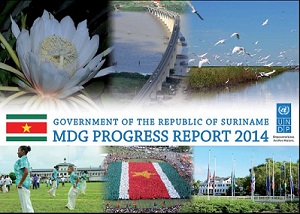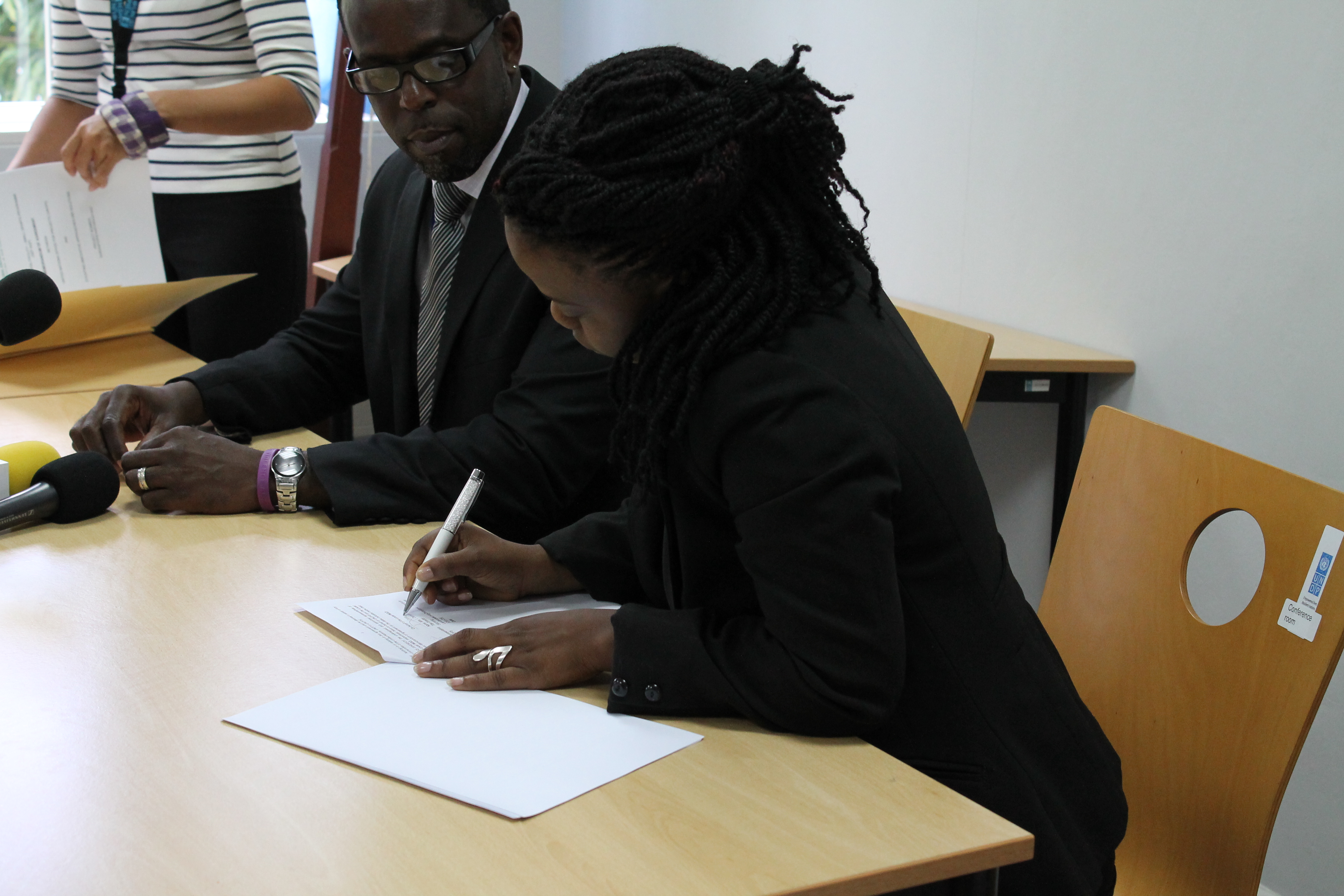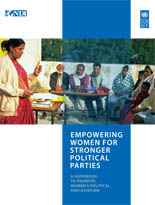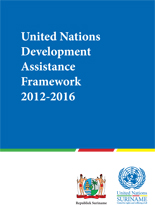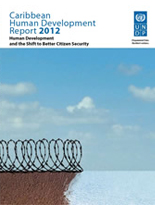|
||||||||||||||||||||||||||||||||||||||||||
|
<< Start < Prev 1 2 3 4 5 6 7 8 9 10 Next > End >> |
||||||||||||||||||||||||||||||||||||||||||
| Page 1 of 10 | ||||||||||||||||||||||||||||||||||||||||||
-
Read more...

Queens Hotel
Paramaribo, Suriname
21th March 2014Mrs. Henna Uiterloo, Permanent Secretary Environment
Staff of the Ministry of ATMEsteemed guest, Dr. Thomas Conway
Officials from other Government Ministries and Agencies
Mrs. Gerda Wesenhagen, Project Coordinator, other members Project Team
Ladies and gentlemen, Members of the press
I am most pleased to be able to say a few words to you today at this National Action Plan Workshop, as one of the important milestones of the Strategic Approach to International Chemical Management project for Suriname. This project is implemented through the Ministry of Labour, Technological Development and Environment (ATM) with support from the United Nations Development Programme (UNDP) and funding from the SAICM Quick Start Trust Fund.
The primary objective of this Global Initiative is to facilitate the integration of sound management of chemicals into national development planning processes in order to support sustainable development in developing countries and countries with economies in transition.
To date the project for Suriname has delivered the following results: an analysis of the national chemical situation, training on occupational health and safety, sensitization to SAICM approach, identification of priority action steps and related action plan. Your role here today is critical in supporting the finalization of this action plan and to provide guidance and ideas to better ensure that it is implemented. One way of supporting that the action plan is implemented is by becoming its greatest advocates within your Ministry, Company or social surroundings.
Key objective identified in the draft National Action Plan is accelerated building of legal, institutional and physical infrastructure for the sound management of chemicals in Suriname to move the country towards the SAICM 2020 Goal.These cross cutting actions are the primary focus and denominator of the draft Action Plan seeing as they are catalytic and should facilitate sector, company, institute or individual specific action.
Ladies and Gentlemen, what are not sufficiently appreciated are the critical role, sensitization, education and awareness that targets the different audiences to the threats chemical pose to peoples’ health, livelihoods and life chances and that these differently impact on women, men and children. We cannot stress this enough. The differences in gender and the gender division of labor determines different occupational profiles and risks that women and men face and also have to be taken into consideration in prioritizing urgent actions in the chemicals management.
Ladies and gentlemen, UNDP is privileged to collaborate with the Government of Suriname through the Ministry of ATM and sister agency UNEP in the SAICM project. We thank the Government of Suriname, and more particularly the Ministry of ATM for the excellent partnership we enjoy and look forward to deepening and strengthening this relationship into the future.
In closing, I would like to wish you an informative and successful workshop.
I thank youArmstrong Alexis
Deputy Resident Representative UNDP Suriname -
Read more...
 Dr. Thomas Gittens United Nations Development Programme (UNDP) Country Director during his remarks at the opening of the training in project writing stressed that achieving transformation is never easy task and in part dependent on increased technical and functional capacities but more so on empowering major groups to engage governments and political leaders and provide solutions that result in a shift from business as usual to meaningful and sustained change.
Dr. Thomas Gittens United Nations Development Programme (UNDP) Country Director during his remarks at the opening of the training in project writing stressed that achieving transformation is never easy task and in part dependent on increased technical and functional capacities but more so on empowering major groups to engage governments and political leaders and provide solutions that result in a shift from business as usual to meaningful and sustained change. -
Read more...

On the24th of July, 2013 the SIDS Follow-up Consultation meeting was held at the Ball Room of the Lallarookh Centre,
where the draft SIDS country report for Suriname was presented.
This draft country report is a product of an extensive process involving desk reviews and interactive/consultative sessions, led by the Ministry of Foreign Affairs with support from NIMOS and UNDP.
As part of the consultative process an earlier meeting, was held on the 19th of June at the Marriot Hotel.
These meetings are meant to inform and consult representatives of key stakeholders on the process of preparing for and strategy towards the upcoming 3rd SIDS Conference in 2014 in Samoa and related post 2015 agenda.
-
Read more...
The General Bureau of Statistics (ABS) and the United Nations Development Programme (UNDP) have jointly produced the first Human Development Atlas for Suriname, which was launched on 12th August 2013, at the Banquet Hall of Torarica Hotel.
The Human Development Atlas is a product of a partnership between the UNDP and ABS, and one year of intensive collaboration.
The Human Development Atlas uses data for time periods 2004-2006 and 2009-2010 and compares the development trends during these time periods. The Suriname Human Development Atlas uses district level data produced by the General Bureau of Statistics of Suriname and generated from available surveys such us Multiple Indicator Surveys for Suriname.
This initiative is meant to showcase the use of data in a very practical and user-friendly way.
-
Read more...
 Paramaribo, 27 August 2013 - The foundation Innovative Solutions (INNOVA), on behalf of and in close cooperation with the Small Grants Programme (SGP), has organized a two-day Environment and Development Knowledge Fair on the 23rd and 24th of August 2013. The fair highlighted several activities the Small Grants Programme to garner more publicity and to ensure that grantees will fulfil a more active role within the program. Preceding the fair a two-day workshop was held for the grantees to strengthen their capacities and to enable sharing of lessons learned among each other.
Paramaribo, 27 August 2013 - The foundation Innovative Solutions (INNOVA), on behalf of and in close cooperation with the Small Grants Programme (SGP), has organized a two-day Environment and Development Knowledge Fair on the 23rd and 24th of August 2013. The fair highlighted several activities the Small Grants Programme to garner more publicity and to ensure that grantees will fulfil a more active role within the program. Preceding the fair a two-day workshop was held for the grantees to strengthen their capacities and to enable sharing of lessons learned among each other. -
Read more...
United Nations Development Programme
UN House
Heerenstraat 17
Paramaribo, Suriname
Phone # 597-421417
Fax # 597-425136
Website: www.undpsuriname.org
News & Activities
- Request for quotation Consultancy Firm
- SIDS discussion facilitated by GEF SGP
- Second round of GEF SGP contract signing
- Government of Suriname - UNDP R-PP Project Document
- Boy Scouts of Surinam organize National Car Free Day
- National Action Plan Workshop for the Strategic Approach to Integrated Chemical Management (SAICM)
- SGP signs projects on UN International Day of Forests for a total of USD 343.000
- Empowered Generation: Youth Action on CC
- PROJECT WRITING TRAINING FOR MAJOR GROUPS IN SURINAME
- SIDS Follow-up Consultation Ball Room Lallarookh Centre
UNDP Suriname
| Who We Are |
| What We Do |
| News & Activities |
| The MDG’s |
| Small Grant Programme |
| The UNDP Suriname Staff |
| The UN Working For You |
| Employment Opportunities |
| Press Releases |
| Publications |
| Contact Us |
Search
UNDP Global
| UNDP Global |
| UNDP Today |
| UNDP On Facebook |
| UNDP YouTube Channel |
| UNDP On Twitter |
| UNDP on Flickr |
| UNDP Country Offices |
| UN Volunteers |
| UN-REDD Programme |
| Forest Carbon Partnership Facility- Suriname |
Login
PUBLICATIONS
| Government of the Republic of Suriname MDG Progress Report 2014 |
| Human Development Atlas Suriname |
| Realizing the future we want for all |
| The Millennium Development Goals Report 2012 |
| A Guidebook to Promote Women's Political Participation |
| Mobile Technologies and Empowerment: Enhancing human development through participation and innovation |
| United Nations Development Assistance Framework 2012-2016 |
| Caribbean Human Development Report 2012. Human Development and the Shift to Better Citizen Security |







